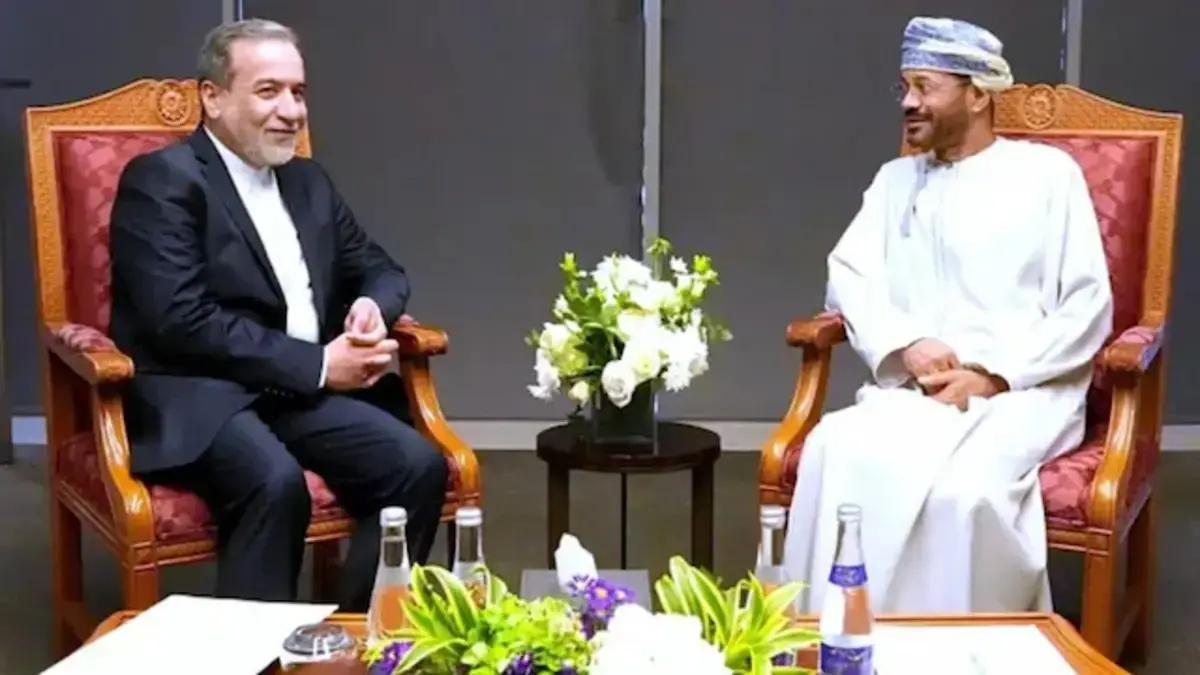Updated 12 April 2025 at 18:18 IST
US, Iran Begin ‘Indirect Talks’ Over Tehran Nuclear Program
Iranian Foreign Minister Abbas Araghchi is heading the delegation from Tehran, while Trump's special envoy Steve Witkoff leads the US team.
- World News
- 3 min read

New Delhi: The United States and Iran have entered indirect, high-stakes negotiations over Tehran’s nuclear program in Muscat, Oman. The talks, mediated by an unnamed intermediary, mark a renewed but tense effort to reach a fresh nuclear deal following President Donald Trump's abrupt withdrawal from the 2015 accord.
While the US had pushed for face-to-face meetings, Iran insisted on maintaining indirect communication.
Iranian Foreign Minister Abbas Araghchi is heading the delegation from Tehran, while Trump's special envoy Steve Witkoff leads the US team.
Iran Looks for Sanctions Relief, US Demands Full Dismantling
Iran, grappling with a battered economy and regional isolation—compounded by Israel’s attacks on Hezbollah and Hamas is seeking a deal that would lift punishing economic sanctions. However, the US is demanding that Iran dismantle its nuclear infrastructure entirely, a demand many experts believe Iran is unlikely to accept.
Advertisement
“Our intention is to reach a fair and honourable agreement from an equal position,” Araghchi said in a message released through state television.
Trump Doubles Down on Threats
Speaking aboard Air Force One, President Trump stated bluntly: “If it requires military, we’re going to have military,” in response to questions about what would happen if talks fail.
Advertisement
Just days earlier, Trump had announced the talks during a press conference with Israeli Prime Minister Benjamin Netanyahu, making it clear that Washington would not tolerate Iran edging closer to a nuclear weapon.
“I want Iran to be a wonderful, great, happy country. But they can’t have a nuclear weapon,” he said.
Despite the hardline starting point, Witkoff hinted at potential room for maneuver.
“That doesn’t mean, by the way, that at the margin we’re not going to find other ways to find compromise between the two countries,” he told The Wall Street Journal.
However, he added unequivocally: “There can’t be weaponisation of your nuclear capability.”
In response to Trump’s military threats, Iran warned it may expel UN nuclear inspectors—an act the US said would amount to a major escalation. The International Atomic Energy Agency (IAEA) recently reported Iran has stockpiled nearly 275 kg of uranium enriched to 60 percent—dangerously close to weapons-grade.
2015 Deal's Collapse Still Looms Over Talks
The current negotiations aim to revive or replace the 2015 Joint Comprehensive Plan of Action (JCPOA), which Trump exited in 2018. That deal, co-signed by the UK, France, Germany, Russia, and China, was designed to block Iran from developing a nuclear weapon while allowing it to pursue civilian nuclear energy.
Since the US withdrawal, Iran has resumed and accelerated its enrichment activities, leading to mounting international alarm.
Karim Bitar, a Middle East expert at Sciences Po, said, “The deal would have to include Iran stopping its support to its regional allies.”
“The one and only priority is the survival of the regime,” said Bitar. “Ideally, they need some oxygen—some sanctions relief—to get their economy going again, because the regime has become quite unpopular.”
Published By : Isha Bhandari
Published On: 12 April 2025 at 18:18 IST
